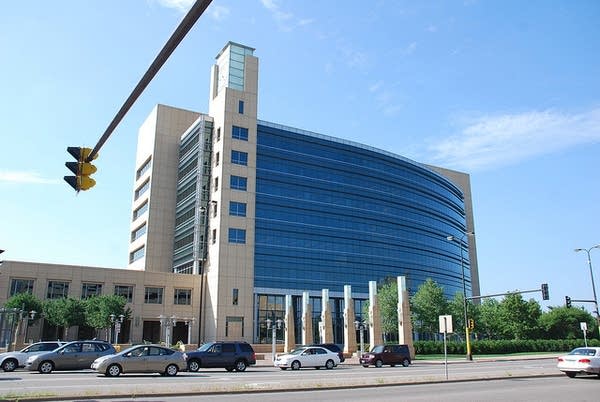How will the Federal Reserve Bank ruckus affect the U?
Go Deeper.
Create an account or log in to save stories.
Like this?
Thanks for liking this story! We have added it to a list of your favorite stories.

MPR News reporter Annie Baxter writes how a shakeup in the research department at the Federal Reserve Bank of Minneapolis that ousted two economists -- both University of Minnesota professors -- may have implications for the U.
She writes that critics are questioning the future of the special relationship between the regional bank and the U's economics department:
[College of St. Benedict/St. John's University professor Louis] Johnston says that a close collaboration has helped create several Nobel economics prize winners. If the Minneapolis Fed is going to split from the U's economics professors philosophically, it's not clear whether that mutually beneficial relationship will hold up.
Turn Up Your Support
MPR News helps you turn down the noise and build shared understanding. Turn up your support for this public resource and keep trusted journalism accessible to all.
For a little background, I read a blog post by economist Stephen Williamson, which I ran across in a commentary by U of M chemistry professor Bill Gleason:
Beginning in the early 1970s, the Bank created a relationship with the University of Minnesota. The Bank could provide resources to support research in exchange for the ideas of top academics, those top people would help the Bank to attract other top researchers to serve as full-time economists in the Bank's research department, and the whole research operation could be much better than the sum of its parts. Under the leadership of people like Gary Stern (President from 1985-2009), Art Rolnick, and Warren Weber, research at the Bank flourished - indeed, it was revolutionary. Four people (or more, depending how you count) associated in various ways with the Bank now have Nobel prizes in economics.
So would such a decades-long relationship really tank over two firings?
I called Christopher Phelan, chair of the U's economics department -- who also does some work for the Fed -- to ask how the affair has affected the partnership.
(As many as 20 U grad students and a handful of professors work for the Fed, he says.)
Phelan wouldn't talk about the ouster of the two economists or comment on whether tensions existed between the two bodies. Nor would he say whether there were potential threats to the relationship.
He did say the two bodies still have a "good relationship," and that he expects it to continue with no significant change in the number of people the U shares with the Fed:
"Personnel disagreements such as this one I don't think are going to affect the relationship in the long term."


